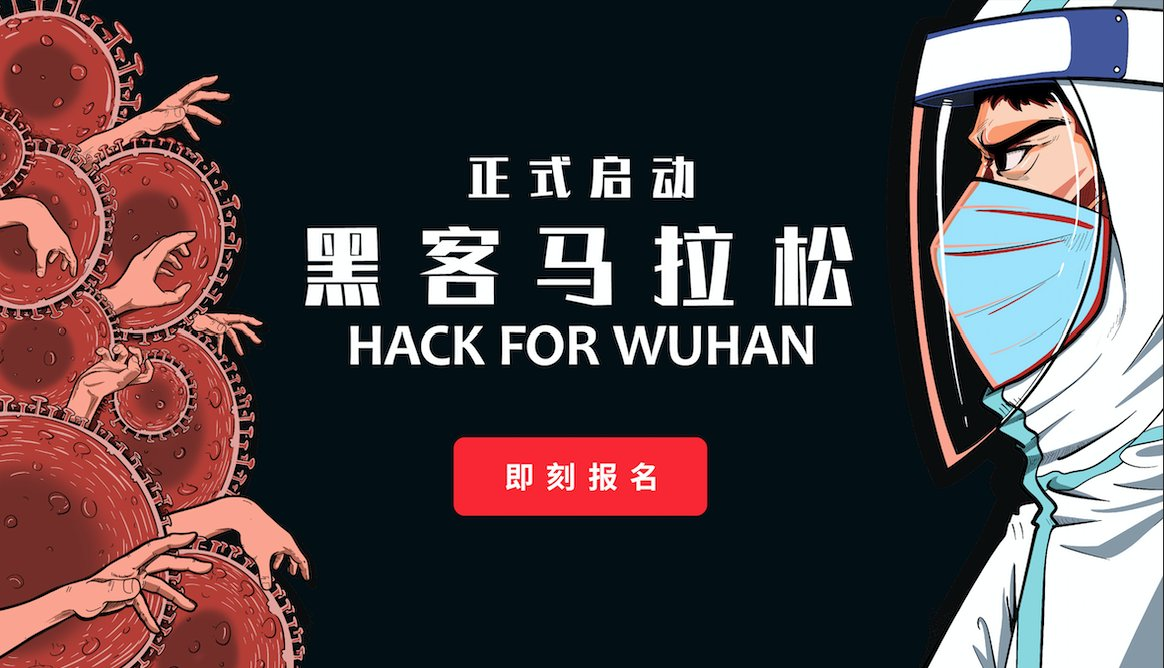The Chinese New Year in 2020 was one of the saddest Chinese New Years in recent memory. After the sudden outbreak of the COVID-19 virus, the city pressed pause on all celebrations.
And now – even as the pandemic lets up in China – schools remain closed. Most of the shops are still closed. People still can’t go out and enjoy the spring.
In this global public health crisis, it's not just front line medical staff taking action. Other people are producing masks and protective equipment, transporting daily supplies, and providing psychological assistance to people in affected areas.
And developers are jumping into action, too.
The Hack for Wuhan Hackathon
The wuhan2020 open source community planned a big hackathon. The theme: open source collaboration to tackle the challenges behind the epidemic.
Together, they encouraged developers to take advantage of their own technology to support this new smokeless war.
wuhan2020 is a group of independent developers who write code to aggregate and analyze epidemic data. They use this to predict the spread of the virus and figure out where to send medical supplies.
Since wuhan2020 was created in January, it has already attracted more than 3,000 volunteers from different countries.
They reached out to freeCodeCamp asking if we'd be interested in helping support their upcoming hackathon. I also discovered that the leader of freeCodeCamp's Chengdu study group, Shui Ge, was one of wuhan2020's core developers.
How freeCodeCamp Got Involved
freeCodeCamp joined the hackathon organization team as a cohost. Several of our contributors helped plan the competition, served as judges, and maintained the GitHub repository.
It took only 20 days from initial idea to hosting the hackathon itself.
Here is some quick data about the event:
- More than 50 volunteers hosted the competition
- 902 contestants from 33 countries signed up
- 33 teams entered the preliminary round. 12 teams reached the final round. And 8 teams won the grand prize.
- 4 companies provided technical resources for the competition, including IBM Developer, Agora.io, Tencent Serverless, and Amazon Web Services.
- 45 industry professionals around the world provided guidance, such as Connie Chan at the Andreessen Horowitz Venture Capital firm, former Alibaba CTO Zhuang Ziming, and Eva Woo from The Stanford Center on Philanthropy and Civil Society (PACS)
- 48 media published articles about the hackathon that more than 700,000 people read

Hackathon Themes
The overall theme of the hackathon was: use open source software to solve the social challenges behind the epidemic.
Introducing Some of the Winning Projects
The 12 finalists started their live demos online, and judges were able to comment online as well.
Finalist: A One-stop Open Platform for Epidemic Data
This open platform helps researchers efficiently collect, label, and analyze outbreak data.
Lots of official agencies and health commissions report fine-grained epidemic data. But the data formats are often incompatible, and require humans to interpret them. This makes it impossible to use crawlers to automatically crawl and structure the data. You have to introduce skilled manual labor.
So how do you collect data efficiently with as little labor as possible?

This project adopts an open source collaboration method, bringing all people interested in the data to this platform. Then the platform helps people structure and label the data.
Once that's done, the platform makes the data available through a public API. Scientists and developers can build other tools on top of this API.
autovax
Autovax is a web application that allows a vaccine and other treatment drugs to be automatically generated from the virus genome and virus genes.

A researcher from Harvard is developing this to help with COVID-19.
City Hero
In this educational game, you can choose a profession – such as doctor or nurse – to experience their life during the pandemic. This helps players understand the people involved in the aid effort, and the difficult choices they face.

The Path Forward
The Hack for Wuhan hackathon was not just a challenge for the contestants, but also a challenge for the organization team. We planned and executed everything in just 20 days, and helped 900 developers participate.
I want to thank everyone involved. And thank you for reading this hackathon report.
I hope you all will stay safe, and that we can all embrace spring as soon as it's safe.
If you are interested in learning more about these projects, or participating in our next hackathon, you can contact me on WeChat at fcczhongguo, or on Twitter.

